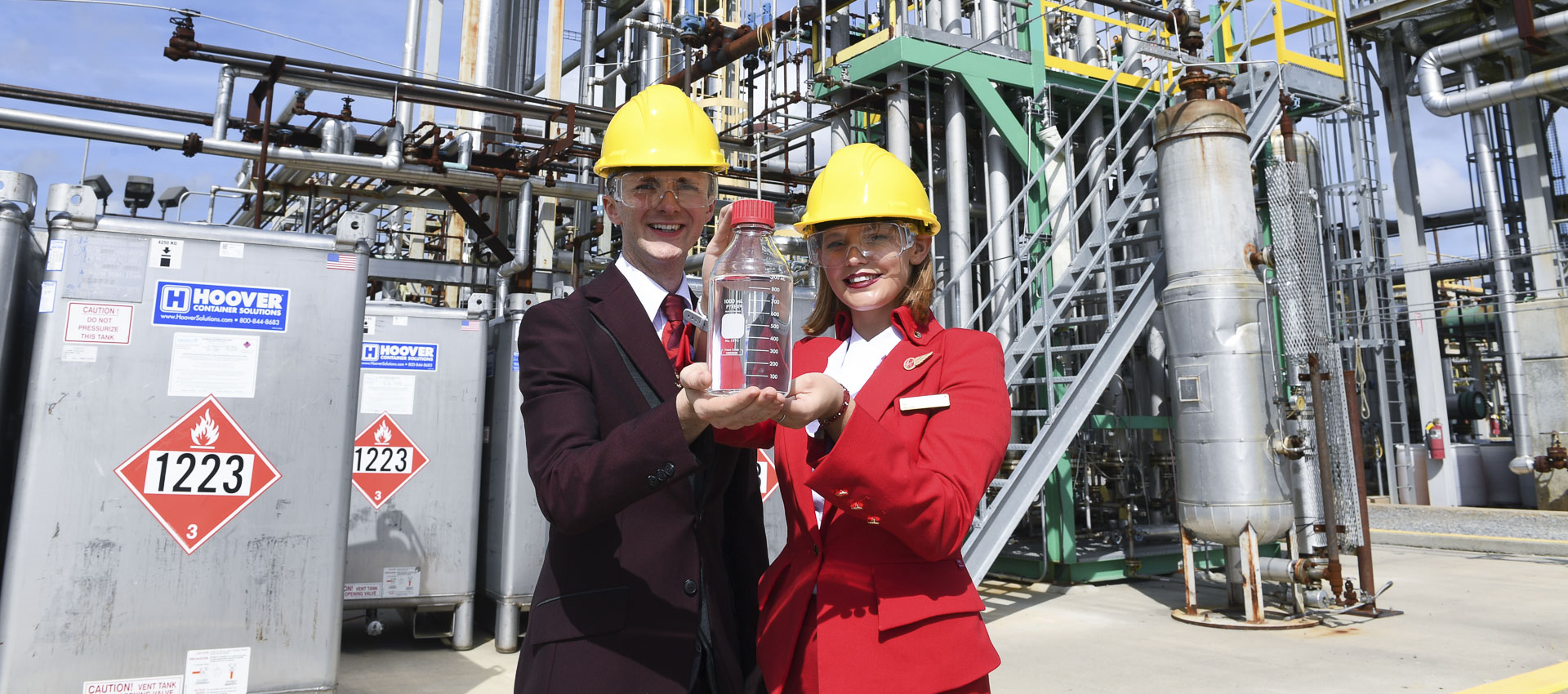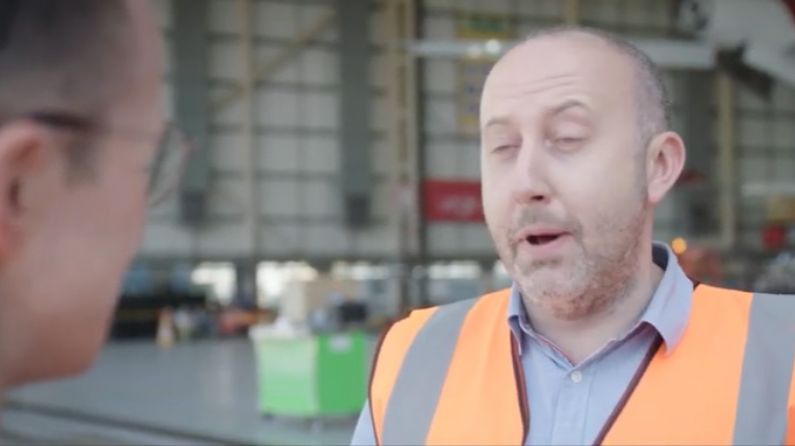It’s the biggest issue of our age, and in the week of the United Nations’ Climate Action Summit in New York we want to share the actions we’re taking to reduce our carbon emissions, and how we're leading the aviation industry on making change happen, faster.

Though it’s currently carbon intensive, flying is a part of modern life that brings significant social and economic benefits. Many jobs and livelihoods at home and abroad are supported by aviation. But make no mistake – we understand and accept the latest climate science, and along with other airlines and manufacturers, we’re passionate about making bold, rapid changes to address it.
Change is in the Air
As an airline, we’re acutely aware of the climate emergency and the pressing need for all industries to act, especially those that are carbon intensive like ours. Here at Virgin Atlantic, we’ve been a long-time leader on climate action, helping drive change across the aviation industry for more than 12 years. Since the launch of our Change is in the Air sustainability programme in 2007, carbon reduction has been our no.1 environmental priority, and this year we’ve been working hard to develop the next phase of our plan so we can go even bigger and bolder on this critical issue.
Our ‘big 3’ carbon reduction plan
When it comes to the climate crisis, our cabin crew feel the same sense of urgency as you do, and as the public face of Virgin Atlantic it’s often down to them to communicate our sustainability strategy. So we invited Simon Cowley, a cabin service supervisor with a particular interest in climate issues, to find out more about what we’re doing to reduce our impact. In the short film below he chats to our environmental experts who explain our ‘big 3’ carbon reduction plan.


"In our industry, and at this critical time in a climate emergency - we owe it to our customers and each other to know what we’re doing about the impact we make on this planet. It’s our livelihood to connect customers across this planet, and I’m so proud to share the work that our sustainability team has been so focused on". Simon Cowley, Cabin Service Supervisor
As you can see in our film, we’ll make the most significant impact in the shortest possible time by focusing our efforts on the ‘big 3’ carbon reduction wins: fleet, CORSIA and fuels. Let’s take a look at each of these in more detail:
Fleet
Our super efficient Airbus A350-1000 uses 30% less fuel than the aircraft it replaces.
Since 2011, we’ve been implementing a multi-billion dollar fleet upgrade from four-engine to more efficient twin-engine aircraft. By optimising our planes in this way we’re making approximately 30% carbon savings per trip, and alongside efforts to fly more efficiently and reduce onboard weight, we’ve achieved 20% CO2 reductions across the fleet since our baseline year in 2007.
We expect more savings as new A350s come into service over the next two years, followed by A330neos in 2021–2024. Today, our per passenger average CO2 per km across our fleet is 81g, compared to the UK government figure of 111g for long haul aviation and 121g for the average UK car (single occupancy).
In the longer term, exciting and important developments such as hybrid and electric aircraft are on the cards. Although these will benefit short haul travel initially (probably not before the mid-2030s) we’re keen to support this and other breakthrough developments.
CORSIA and offsetting
A bit like the Paris climate agreement but purely for aviation, CORSIA is a hugely important deal and stands for the Carbon Offsetting and Reduction Scheme for International Aviation. It was negotiated by individual countries and the UN body ICAO (International Civil Aviation Organisation) and agreed in October 2016, after many years of active industry support from airlines, including Virgin Atlantic. CORSIA and aims to address industry target of carbon neutral growth from 2020.

CORSIA means that between 2021–2035, airlines will collectively pay billions of dollars into quality new carbon reduction projects around the world, like renewable energy and forestry schemes, preventing an estimated 2.5 billion tonnes of CO2 being emitted into the atmosphere. A global market-based measure like CORSIA is important because it’s much more environmentally effective than taxes because it gives a tangible value to carbon savings and money goes directly to independently-verified CO2 reduction projects (instead of governments for example). It means airlines on the same routes are treated equally in financial terms, avoiding a situation where carbon simply moves to another airline because it benefits from lower costs.
So far, 81 countries (around 77% of global aviation) have signed up to pay their share of airline carbon, with the scheme becoming mandatory for all countries (and their airlines) from 2027.
Fuels
https://www.lanzatech.com/Adding Lanzatech fuel to a Boeing 747 for its first passenger flight in 2018
The next big breakthrough for carbon reduction is set to come from advanced, affordable, waste-based sustainable aviation fuels, or SAF. It’s ambitious, but we’re setting ourselves a target of powering our aircraft with at least 20% sustainable aviation fuel by 2035. We cannot do this alone, but if the right government support was in place commercial production could start as soon as the early 2020s. We’re calling for an urgent commitment to incentivise production towards jet fuels – as opposed to solely incentivising ground fuels – as this will help secure critical investment for the commercial plants we need.
We’re clear that the potential for carbon savings through SAF compared to current fossil jet fuels is huge – currently over 70%. The possibility of developing carbon neutral and even carbon negative fuels is also now within reach.
Through these and other measures, we’re pursuing breakthrough carbon reductions and supporting calls towards net zero. We can’t do it alone and we’re also calling for governments, banks and fuel suppliers to support these measures so we can together accelerate the change we all need.
What else are we doing?

Our new amenity kit has a lot less plastic.
After the ‘big 3’ carbon reduction plan, our most important priorities are making sure we have sustainable supply chains in place and reviewing all our ground operations, and that involves every one of us here at Virgin Atlantic staying focused on waste, weight, energy and product reduction. Here’s just a few examples of what we’ve been doing:
– Reducing weight onboard through careful galley planning
– Eliminating single use products wherever possible
– Shifting our car fleet to fully electric and hybrid vehicles
– Moving our headquarters into sustainably designed premises and improving other buildings
– Via our partnership with the Sustainable Restaurant Association, we’ve been sourcing fair trade products, promoting higher animal welfare standards, and buying sustainably certified fish, seafood, beef, soy and palm oil (or finding better alternatives).
– Helping you, our customers, understand how you can contribute: for example, if every passenger reduced the weight of their bag by 1kg, we could save around 4,000 tonnes of CO2 each year. That’s equivalent to the annual emissions of 1,500 average cars.
– Helping you offset the emissions associated with your journey via our ClimateCare scheme, which finances renewable energy and natural resource conservation projects around the world.
For more information, visit www.virginatlantic.com/changeisintheair to download our 2019 Change is in the Air sustainability report and other resources. You can read more about our ClimateCare customer offsetting programme or check out Change is in the Air videos and other content on our new ‘Our World’ channel onboard from 1 October.
